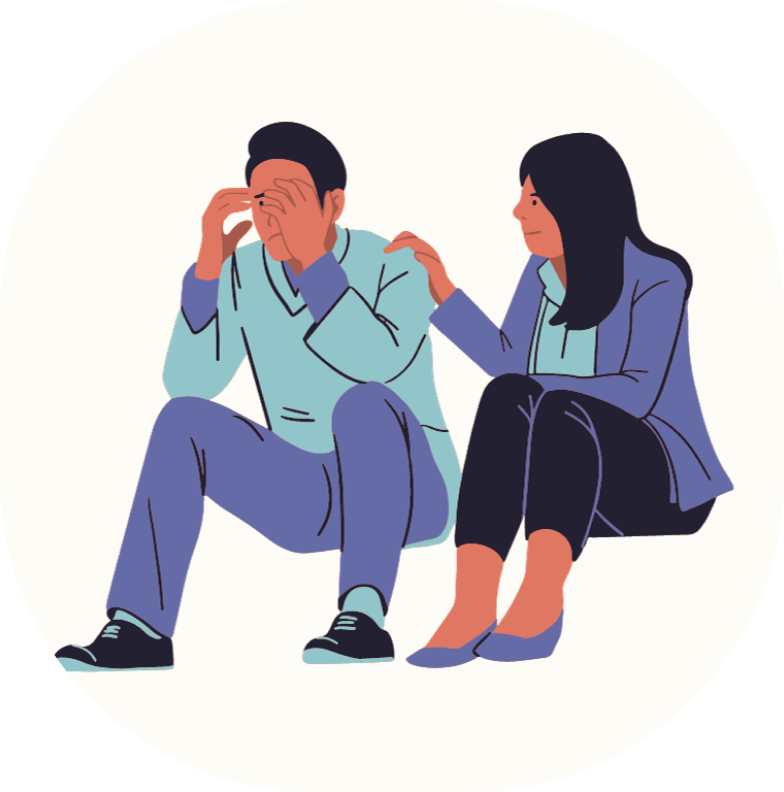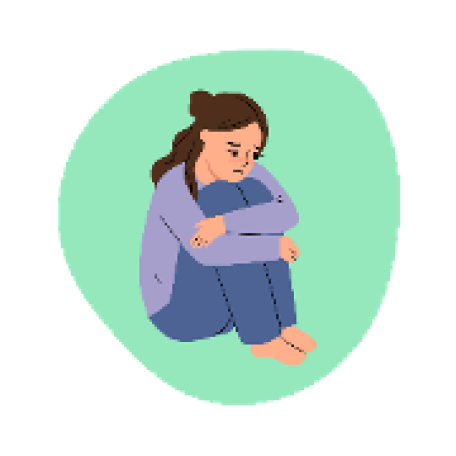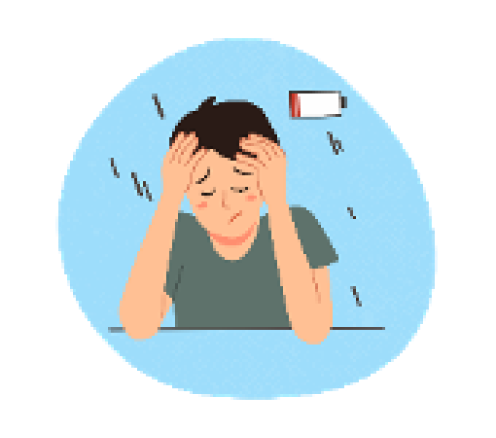Mental health awareness & early signs of mental illnesses

In this session, you will learn more about:
- What does mental health mean?
- Myths and facts about mental illness
- What are the causes of mental health problems?
- What are the consequences of mental health problems?
- Early signs of mental health problems in adolescents
What does mental health mean?
Mental health encompasses everything that occurs internally, including thoughts, emotions, concentration, motivation, and memories. Even dreams are part of it. Being mentally healthy isn’t just about the absence of mental illnesses; it’s the ability to effectively adapt to life’s challenges, both positive and negative. It encompasses various aspects of well-being, including emotional resilience, cognitive functioning, interpersonal relationships, and the ability to cope with stress.
It’s important to note that everyone has mental health, just as they have physical health. Like physical health, mental health can coexist with mental illness.
Good mental health is crucial for overall well-being, affecting how we think, feel, and act. It enhances emotional stability, resilience, and adaptability, allowing individuals to navigate life’s challenges effectively. This is particularly important during childhood and adolescence, where achieving developmental milestones and mastering social skills are essential for maintaining good mental health.

Myths and facts about mental illness

“Everyone who is sensitive or moody has mental health problems.”
Fact: Not everyone with mood-swings or who is crying easily has mental health problems. Everyone can have a bad day or temporary problems without having mental health problems. It also depends on the personality: Some people are a little more sensitive or impulsive than others. However, if such problems are extreme, last for a long period of time, havenegative consequences or affect the person, support should be sought.
“Only weak people can get mental health problems.”
Fact: Everyone can get mental health problems. A healthy lifestyle and coping strategies can reduce the risk.


“Mental health problems are just there without any early signs.”
Fact: There are early warning signs for mental health problems e.g. loss of appetite or sleep problems and it is important to notice them.
“Once someone is mentally ill they will never become healthy again.”
Fact: A Person can recover (gradually) or stabilize the situation with psychotherapy, medication or support. But even if someone can’t recover completely, they can develop strategies and learn to live with it.


“Ordinary People can’t do anything to help a person with mental health problems.”
Fact: Support and acceptance of the social environment is very important for people with mental health problems. Family, friends or teachers can also be an important part of the psychotherapy.
What are the causes of mental health problems?
Health problems can have a lot of causes and may be influenced by various factors e.g., biological factors, social factors, psychological factors.
Biological factors are related to people’s biology, anatomy, and genetics… for example: chronic illness, trauma, family history of mental disorders or brain infection can influence students’ mental health.
Social factors are related to societal and relationship problems that disrupt mental health. For example, an adolescent spends a lot of time with its family, and problems in this sphere can have a big impact. This also happens with school, where conflicts with peers, academic problems or bullying can lead to mental health problems. Other social important factors are relationships, culture, work, socioeconomic status, housing, social isolation, etc.
Finally, psychological factors that influence mental health include beliefs, attitudes, motivations, emotional responses, and coping responses to life stressors. For example, being sensitive or not having adequate problem-solving skills can lead to negative consequences, such as not having self-efficacy or self-esteem.
Importantly, these factors alone usually are not a problem, but in combination with other factors can lead to mental health problems.
What are the consequences of mental health problems?

Early signs of mental health problems in adolescents
An early detection of mental health problems can reduce the impact of the disorder and the worsening of the symptoms. The person feels bad for less time. Also very important: The recovery will be better. So, there is a higher chance that the person will recover.
Here is a list of possible early warning signs of mental illnesses:

Depressed mood
- Less laughing
- Being sad
- No interests in anything for a longer time
Changes in appetite
- More or less appetite




Poor decision making
- e.g. making impulsive irreversible big decisions
Problems with peers
- Friendships with a lot of conflicts, no or frequently changing friends, bullying


Problems with school performance
Inattentive in class, deterioration of grades, conflicts with teachers